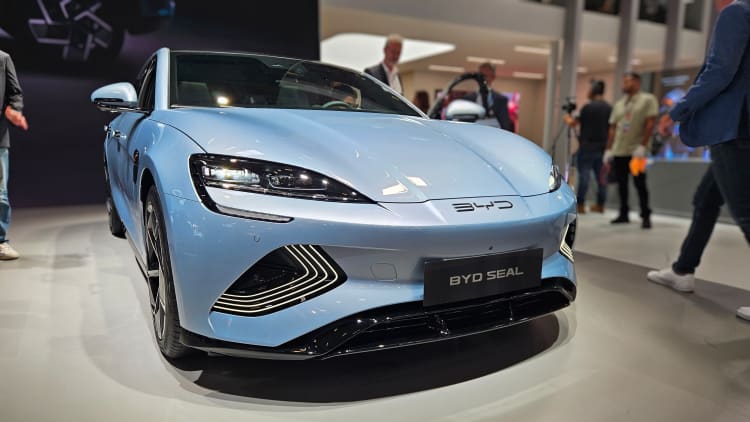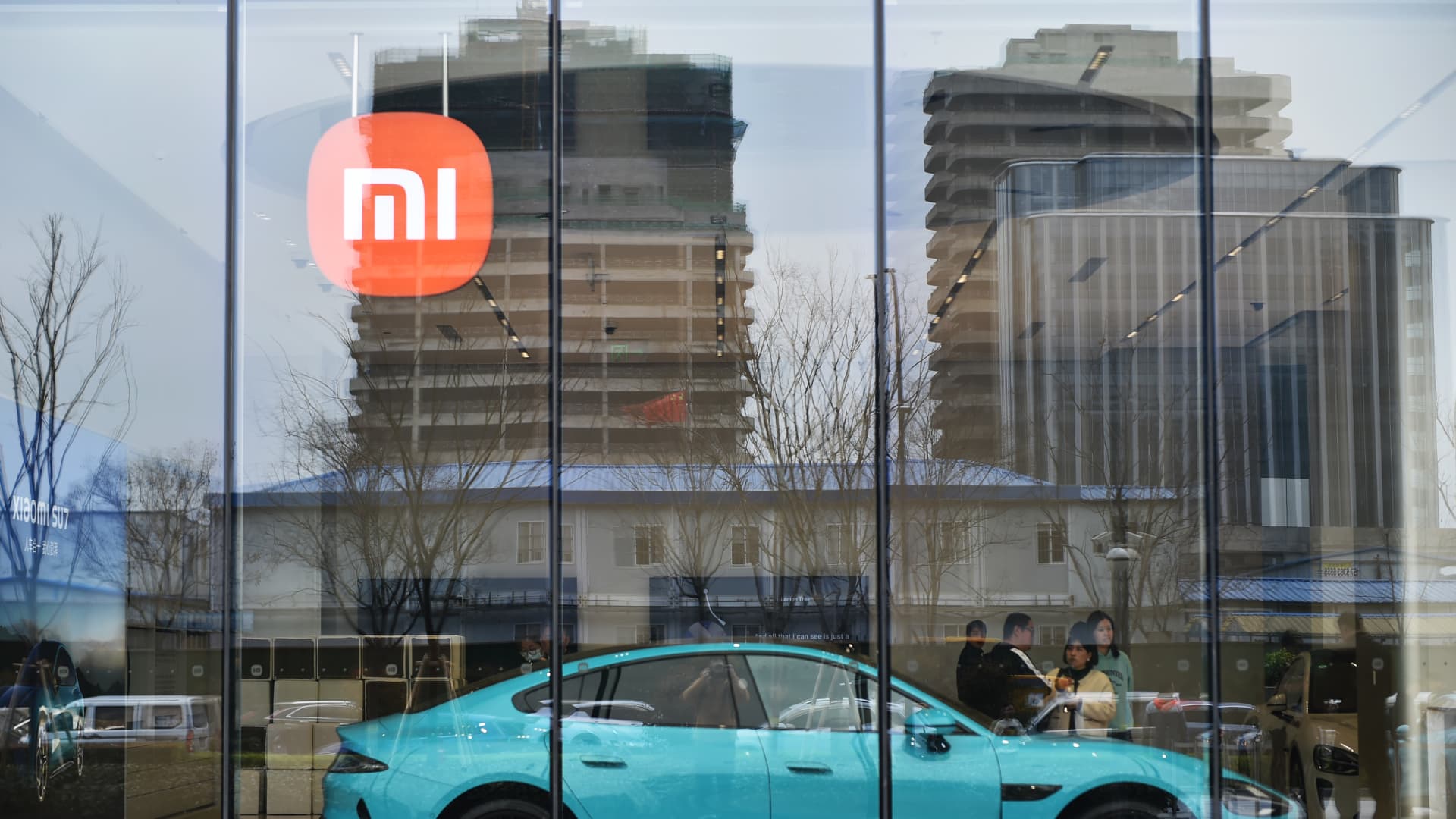A Xiaomi SU7 electric sedan is seen displayed at a regional HQ of Xiaomi in Nanjing in east China’s Jiangsu province.Â
Future Publishing | Future Publishing | Getty Images
BEIJING â Shares of Chinese smartphone maker Xiaomi surged 15% when the Hong Kong market opened Tuesday, the first trading day since the company launched its SU7 electric car ahead of the Easter holiday.
In a sign of how competitive China’s electric car market is, Xiaomi announced late Thursday that the SU7 would be priced at about $4,000 less than Tesla‘s Model 3, and claimed the new car would have a longer driving range.
As of Tuesday morning, Xiaomi’s online store showed wait times of at least 5 months for a basic version of the SU7. The company had said it received orders for more than 50,000 cars in the 27 minutes since sales started at 10 p.m. Beijing time Thursday.
Chinese EV startups Xpeng and Nio announced car purchase subsidies Monday of 20,000 yuan ($2,800) and 10,000 yuan each, respectively. Nio said the promotional deal followed the Chinese government’s policy efforts to promote consumption with trade-ins.
The price reductions come as growth of new energy vehicles in the world’s largest auto market shows signs of slowing. Penetration of battery and hybrid-powered passenger cars has surpassed more than one third of new cars sold in China, according to the China Passenger Car Association.

Li Auto, most of whose cars come with a fuel tank to extend driving range, said Monday it delivered 28,984 cars in March. While up from February, the figure is below Li Auto’s recent delivery streak. The company in late March cut its first quarter delivery estimate by more than 20,000 vehicles.
Around the same time, Nio also trimmed its first quarter forecast by a few thousand cars. The company said Monday it delivered 11,866 cars in March.
Xpeng delivered even fewer cars last month, at 9,026 vehicles.
In contrast, Huawei’s new energy car brand Aito said it delivered 31,727 cars in March.
BYD remained the industry giant with 139,902 battery-powered passenger cars sold in March, and 161,729 hybrid vehicles sold during that time. BYD’s total passenger car sales last month rose by nearly 14% from a year ago.
Read the original article here
